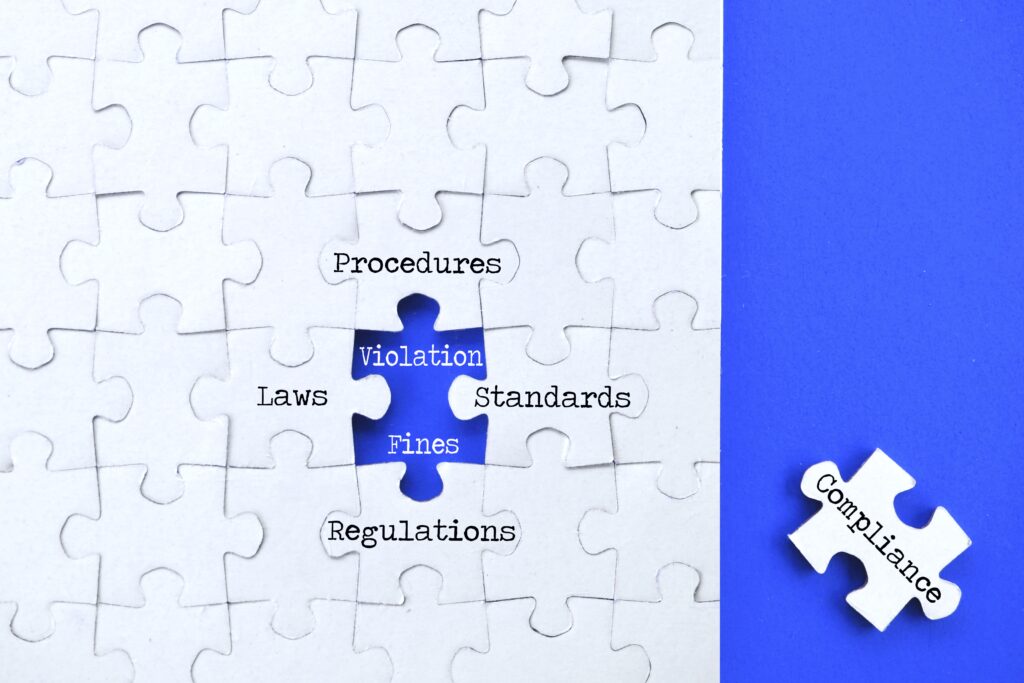Higher Education IT departments are often tasked with a sometimes impossible challenge of managing WordPress websites for universities. While WordPress is a powerful and flexible platform, achieving seamless compliance can feel like navigating a labyrinth filled with plugin woes, security concerns, an ever-growing number of users, and the age-old question of “who has access?” and “to where?” and “doing what with it?” In this three part article series, we’ll delve into the pains faced by IT departments specifically in the education sector (but applies to others) and explore how universities can overcome these challenges to achieve compliance.

1. Plugin Pandemonium: Get Down to Brass tacks
Managing plugins and themes in WordPress can be annoying, time consuming, and thankless. IT departments are presented with a vast array of plugins, each promising to be the perfect note to enhance their website’s performance. Yet, choosing the right combination of plugins, each in harmony with the others, can be as intricate as composing a symphony. The conductor (IT department) must carefully select and coordinate these digital instruments to create a seamless online experience.
However, just as in music, not all notes harmonize effortlessly. Compatibility issues between plugins and themes can create dissonance, disrupting the user experience. Updates, meant to improve performance, can sometimes disrupt the symphony, requiring the conductor to make swift adjustments to maintain the website’s SLAs. In this digital orchestra, IT professionals become both conductors and composers, aiming for a symphony of plugins that resonates with the university’s goals and objectives. Whether it be for security concerns, or bloatware, or illegal actions, and the eternal dilemma of finding the one plugin that magically solves all problems. Does it exist? You tell us! (ServicePress)
2. The Security Tightrope: Balancing Protection and Accessibility
Navigating the security concerns within the WordPress landscape is imperative to maintaining your website reliability and integrity. IT departments must strike a delicate balance between fortifying the website’s defenses and ensuring it remains accessible to its users. With firewalls, intrusion detection systems, robust authentication mechanisms, and a little bit of common sense, the best defense is a good offense!
However, IT departments understand that complete lockdown isn’t an option. Universities need their websites to be open and accessible. So, while they build digital moats and set up cyber-sharks to protect sensitive data, they also provide gates for legitimate users to pass through safely.
In this high-stakes performance, IT professionals must be aware of online security. They continuously analyze threats, update security protocols, and educate users on practicing safe online behavior. The audience must never see the danger lurking beneath the surface, through the thankless job and the meticulous efforts of the IT department.
3. The User Avalanche: A Growing Cast of Characters
As the university’s digital presence expands, the cast of characters wanting access to the WordPress stage continues to grow. Professors, students, alumni, administrators, researchers – they all clamor for a role in shaping the website’s content and functionality, as well as their own brand.
This influx of users adds both excitement and complexity to the production. IT departments must not only manage the increase but also ensure each person plays their part effectively. Professors need to access course materials, students want to post on the blog, and alumni seek to reconnect with their alma mater. The challenge is to provide each character with the right script (permissions) while ensuring they don’t accidentally wander onto another set (access control).
The IT department must carefully manage roles and permissions, ensuring each actor is not a “bad actor”, and respects the boundaries, whether that be by accident or by force.
4. The Mystery of Access Control: Unraveling the Web of Permissions
Determining who should have access to what on the WordPress website can be a mystery. It’s as if the IT department is handed a labyrinth of keys and must decipher which ones open which doors. Professors, students, staff, and various stakeholders all require different levels of access, and managing these intricacies can get complex.
Access control is about permissions and restrictions. Professors need access to course materials and grade submission, students require posting privileges, and the marketing team demands full admin capabilities.
The IT department takes on the role of being the keymaster, meticulously crafting the abilities of each participant in the access control game. With role-based permissions and finely tuned settings, they ensure that the everything flows seamlessly, and the website remains both secure and functional. Precision is key, and the IT department strives to ensure that everyone has access to the right information, and no more.
5. The Plugin Police: Guardians of Digital Order
To address the plugin pandemonium, IT departments often appoint vigilant “Plugin Police officers”. These individuals take on the role of digital guardians, patrolling the WordPress ecosystem with a discerning eye. Their mission? To ensure that only the safe and approved plugins make it onto the university’s website.
Think of these Plugin Police as the cybersecurity sentinels of the digital realm. They meticulously review plugin submissions, scrutinize code for potential vulnerabilities, and assess compatibility. Just as law enforcement officers maintain order in the physical world, these digital guardians maintain the integrity and security of the online domain.
Their work involves a keen understanding of coding practices, cybersecurity threats, and the unique needs of the university’s digital infrastructure. They strike a balance between innovation and security, knowing that the wrong plugin can introduce chaos, while the right one can enhance the user experience. In this digital landscape, the Plugin Police are the unsung heroes who ensure that the website remains a safe and reliable resource for all its users.
To tackle the plugin pandemonium, IT departments often appoint plugin police officers. These brave souls monitor the WordPress ecosystem for rogue plugins, ensuring that only the safe and approved ones make it onto the website. Think of them as the guardians of the digital realm, armed with code and determination. It’s time consuming and can lead to misses. Do you want your team spending their time, just to miss one? There are better options!
ServicePress: a WordPress & WooCommerce Integration for ServiceNow
WordPress and WooCommerce to ServiceNow to keep them in compliance. Versioning, Users, and Content are key to Security, but also provide benefits to other parts of the organization. Time is money. Data is Both! Let us make it easier for you to manage your WordPress websites, remain in compliance, and provide critical context to your IT Support Desk.
Request 30-Day Free Trial: https://servicepress.app/product/servicenow-store-app/

